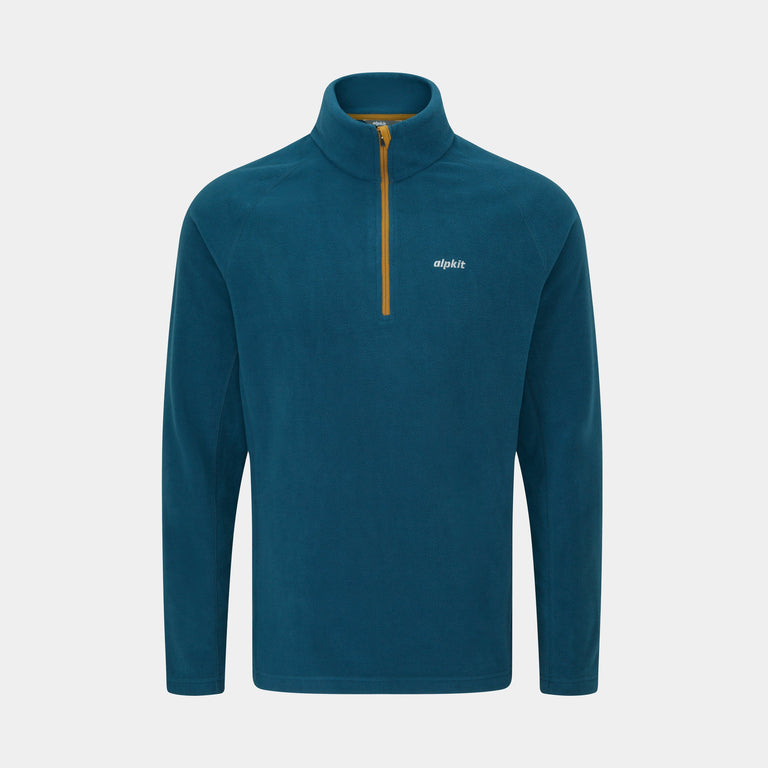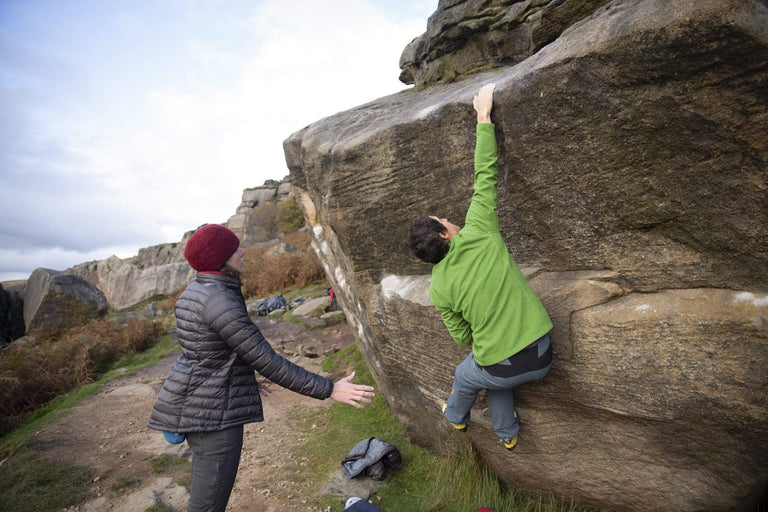
Discover the best fleeces for trail running. We break down materials, fit, and performance for comfort on cool-weather mountain trails.
We are runners and we know we should spend more time running than picking out what to wear from our wardrobe. But we face fickle weather within our shores and it's not always easy.
We know layering holds the key, but it gets a little messy in the middle.
Why midlayers matter in trail running
As an aerobic activity, trail running treads a delicate balance between exertion and environmental conditions. As you traverse varying terrains, yo-yo up and down in altitude, your body temperature fluctuates. You need a clothing system that adapts seamlessly to these changes, keeping you comfortable and focused. Enter the midlayer-a key component in your technical clothing arsenal.
Factors affecting your running comfort
-
Environment: Running trails can take you through forests, mountains, and valleys, each with unique microclimates. A versatile midlayer helps you stay prepared for sudden changes in temperature.
-
Weather: Rain, wind, and snow add complexity to your running conditions. A good midlayer insulates against the cold while remaining breathable enough to prevent overheating.
-
Intensity: The intensity of your run affects your body heat. During bursts of high-energy, you need a breathable layer to wick away sweat, while resting or descending you will cool and require insulation.
-
Carrying rucksacks: A longer trail run may demand that you carry a rucksack for spare clothing, safety equipment and Scooby snax. A rucksack can trap heat and cause friction. A well-designed midlayer needs to work harmoniously with your pack, providing warmth without bulk.
-
Season: Seasonal changes demand flexibility in your gear. Winter runs require more insulation, while spring and autumn need adaptability.
-
Fit: An ill-fitting midlayer can restrict movement and create discomfort. A tailored fit ensures freedom of movement and optimal performance.
-
Duration: Longer runs expose you to more prolonged periods of varied conditions. A midlayer provides substantial adaptability over time on the trail.
Getting the midlayer right
Choosing the right midlayer can transform your trail running experience. It enhances your comfort by regulating body temperature, preventing overheating, and providing necessary insulation. The right midlayer also contributes to your overall safety, reducing the risk of hypothermia or heat exhaustion.
Midlayer solutions for trail runners
We have a range of midlayers designed to tackle the demands of trail running in the UK, the Alps and beyond. Here's how to choose the right one for you:
-
What's the best fabric for a running midlayer?: merino wool, synthetic fibres, and fleece are all popular options. Merino wool is excellent for its natural temperature regulation and moisture-wicking properties. Synthetic fibres offer lightweight insulation and quick drying. Fleece (normally synthetic) provides warmth and breathability.
-
Environmental considerations: Opting for eco-friendly materials and practices makes sense. We focus on delivering sustainable product choices with recycled and recyclable synthetics, responsibly sourced natural fibres and delivering repair options to keep your products running longer. By selecting these products you reaffirm our beliefs.
Discover our trail running midlayers
-
Laika Micro Fleece: Next to the skin comfort for year-round trail running. Lightweight 100% recycled micro fleece, the Laika has a 4-way stretch which moves with you, even when trail running turns into fell running and fell running turns into on-all-fours-running.
-
Akita: A highly breathable mid layer for trail running on frosty mornings and autumn days. The full-length zip means you can vent right down to your base layer to cool down. The Akita has two zipped handwarmer pockets which double up as spacious internal dump pockets for stuffing your hat and gloves mid-activity.
-
Kepler Pure Merino Zip Top: For those colder days, naturally anti-microbial superfine merino long-sleeved base layer with ¼ length zip neck for comfort, freshness, and next-to-skin comfort.
The Midlayer: A Fundamental Part of Your Layering System
The correct choice of midlayer is fundamental to your layering system. It bridges the gap between your base layer and outer shell, providing essential temperature regulation and comfort. As Dave Trott might say, “It’s the little things that make the big things work.” In trail running, the right midlayer is that little thing making your big adventures possible.
Alpkit's collection ensures you stay comfortable, whatever the trail throws at you. As they say, "Our gear is designed by people who love the outdoors, for people who love the outdoors." Choose wisely, run comfortably, and let the trail become your playground.
![Griffon Half-Zip [Womens]](http://us.alpkit.com/cdn/shop/files/griffon-half-zip-womens-2025-sangria_25649184-1e42-4b53-823b-6381036b6f84.jpg?v=1768848995&width=768)
![Griffon Half-Zip [Womens]](http://us.alpkit.com/cdn/shop/files/griffon-3_1b2f4d0b-bae3-4f69-81ac-bb383b2f2af9.jpg?v=1768848995&width=768)
![Griffon [Mens]](http://us.alpkit.com/cdn/shop/files/griffon-mens-2025-nemo_c5a2a28e-108d-408e-8449-f8f0b4b3f82c.jpg?v=1765565844&width=768)
![Griffon [Mens]](http://us.alpkit.com/cdn/shop/files/AW25-Chamonix-JW-4572_1.jpg?v=1765565844&width=768)
![Griffon [Womens]](http://us.alpkit.com/cdn/shop/files/griffon-womens-2025-sangria.jpg?v=1768935420&width=768)
![Griffon [Womens]](http://us.alpkit.com/cdn/shop/files/griffon-3.jpg?v=1768935420&width=768)
![Loki [Mens]](http://us.alpkit.com/cdn/shop/files/loki-mens-2025-spruce.jpg?v=1762889236&width=768)
![Loki [Mens]](http://us.alpkit.com/cdn/shop/files/Loki_AW24_Chamonix_4884.jpg?v=1762889236&width=768)
![Loki [Womens]](http://us.alpkit.com/cdn/shop/files/loki-womens-2025-spruce.jpg?v=1763060010&width=768)
![Loki [Womens]](http://us.alpkit.com/cdn/shop/files/Loki_AW24_Chamonix_4918.jpg?v=1763060010&width=768)






![Kelpie [Womens]](http://us.alpkit.com/cdn/shop/files/womens-kelpie-2024-dusk_98e7b1c6-7c10-4890-b216-ba6589d740c3.jpg?v=1754330479&width=768)
![Kelpie [Womens]](http://us.alpkit.com/cdn/shop/files/womens-kelpie-2024-1.jpg?v=1754330479&width=768)
![Keeshond [Womens]](http://us.alpkit.com/cdn/shop/files/womens-keeshond-2024-outerspace.jpg?v=1764183428&width=768)

![Keeshond [Mens]](http://us.alpkit.com/cdn/shop/files/mens-keeshond-2024-kelp-ADJUSTED.jpg?v=1764183554&width=768)


